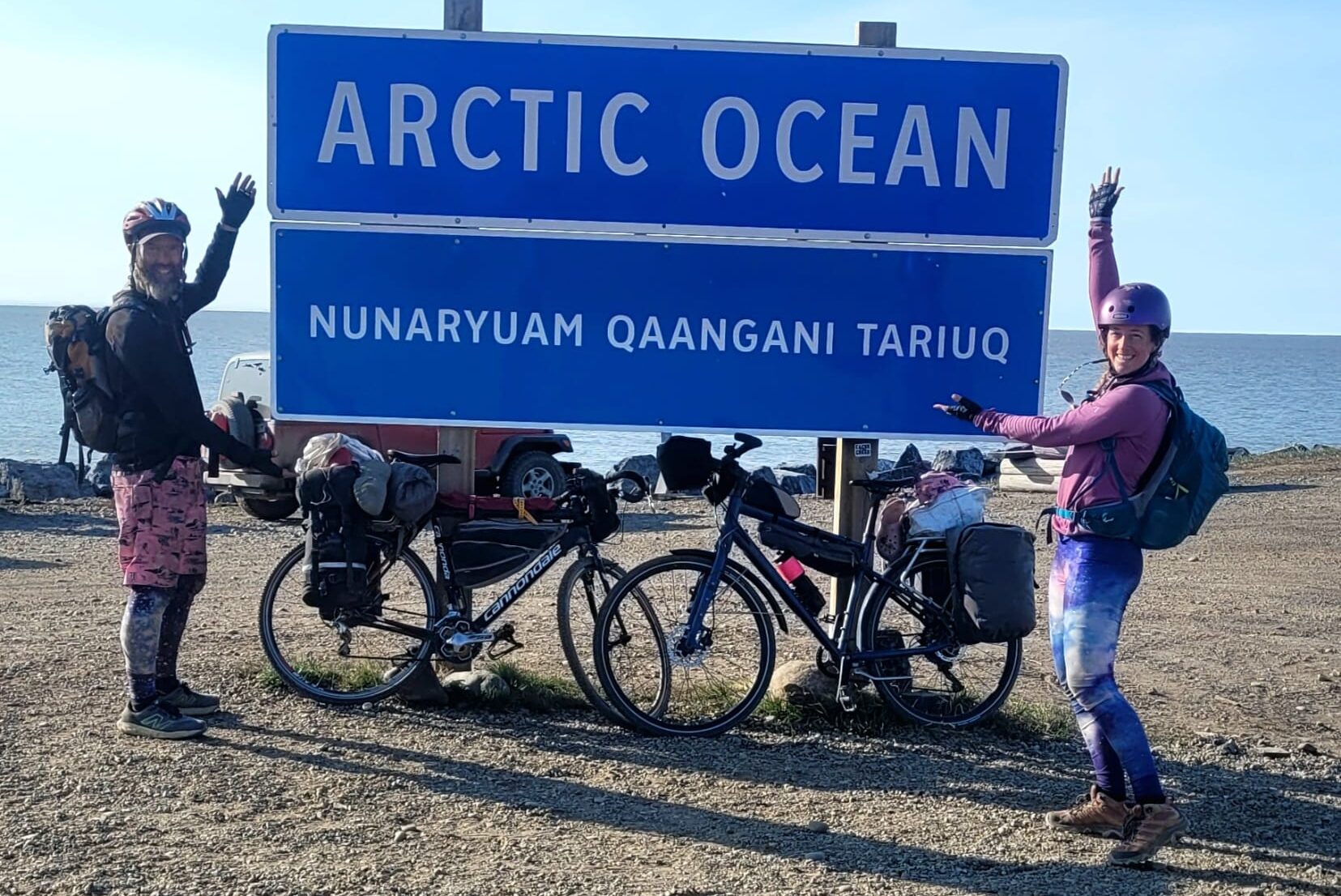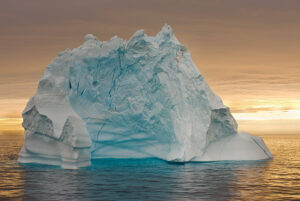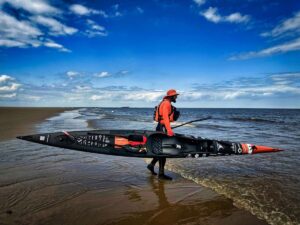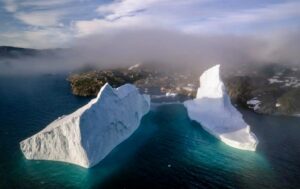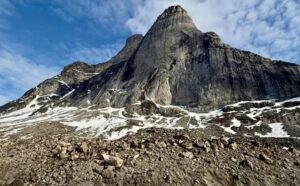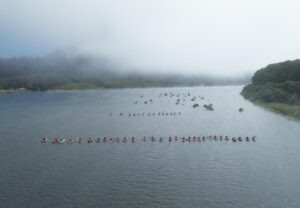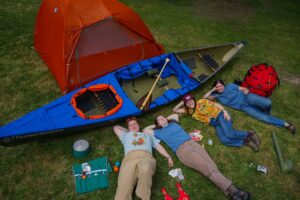Last month, Canadian adventurers Dave Greene and Gaia Aish completed a 1,725km bike and canoe journey from the British Columbia border to the shores of the Arctic Ocean over 30 days.
The pair started on May 22 from the border of British Columbia and the vast Yukon Territory. To begin, they pedalled around 100km to a small settlement by the Yukon River, where they picked up their pre-stashed Canoes. “It was a good little break into the trip. A little gear shake down, if you will,” Greene explained.
From here, Greene and Aish set out on a 746km canoe leg along the river, where they faced no major rapids or portages, but low water levels and snow melt made the journey challenging. As a result, they spent long hours in the boat, with paddling sessions stretching to 12 hours a day.
“We managed to cover significant distance by doing that; we were paddling 60, 70, sometimes 80km in a day,” Greene reflected.
Yukon delights
Despite the long days, Greene enjoyed the Yukon River: “It was an incredible part of the trip, maybe the most memorable part for us.”
This may have partly been because the two Canadians were treated to a host of wildlife sightings, including both moose and bears with babies, lynx, sheep, wolves, and even a wolverine.
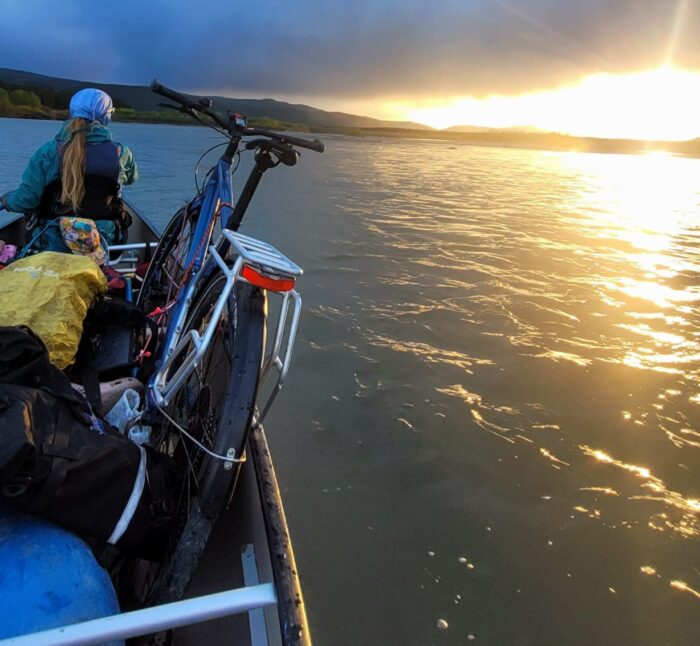
Bikes stashed in the canoe on the Yukon River. Photo: Dave Greene
Greene and Aish carried their bikes in the canoe down the Yukon. When they eventually reached the end of the canoe leg in the historic gold rush town of Dawson City, they left their rented canoes with a company that returned them to the south.
At Dawson, the duo got back on their bikes. On June 12, they headed out onto the Dempster Highway, Canada’s only road north to the Arctic Ocean. The cycle north took twelve days, and the 940km they covered was hard earned.
Greene and Aish pedalled through a summer heatwave, prompting night rides to avoid the intense heat. The gravel road and dry climate made finding drinkable water difficult, as well as turning the ride into a dusty affair.
“The Dempster is a gravel road. So, being as hot as it was, it was also extremely dusty. We had dirt kicked into our faces, in our ears at all times,” Greene said.
The Midnight Pedal Paddle Party
A benefit of riding this far north is the extended daylight hours, hence Greene dreaming up the expedition moniker, the “Midnight Pedal Paddle Party.”
“We were north of the Arctic Circle for the majority of this bicycle ride, which means that the sun was not setting. So we had 24 hours of daylight, which, after a certain amount of time, one just gets used to. You get tired enough that you can just lie down and sleep, but it also allowed us to ride our bikes whenever we wanted,” Greene explained.
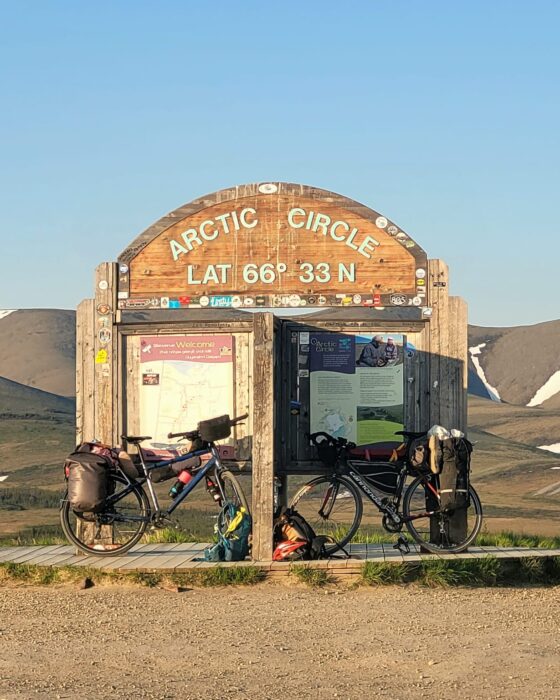
Crossing the Arctic Circle. Photo: Dave Greene
To ease some of the weight burden while cycling, Greene and Aish turned to the Dawson City Visitors Center, which allows cyclists to leave food boxes for pickup by drivers heading to Eagle Plains Hotel, a pit-stop 500km into their route. Additionally, they had a friend in the Northwest Territories, so they met with them to collect another box of food. At most, they had to carry seven days of food at a time.
To the ocean
The final 150km from Inuvik to Tuktoyaktuk were the most demanding of the expedition, thanks to the freshly gravelled road.
“It was four to six inches of fresh gravel and we had to push our bikes up all of the hills, because it was simply unrideable,” Greene recalls.
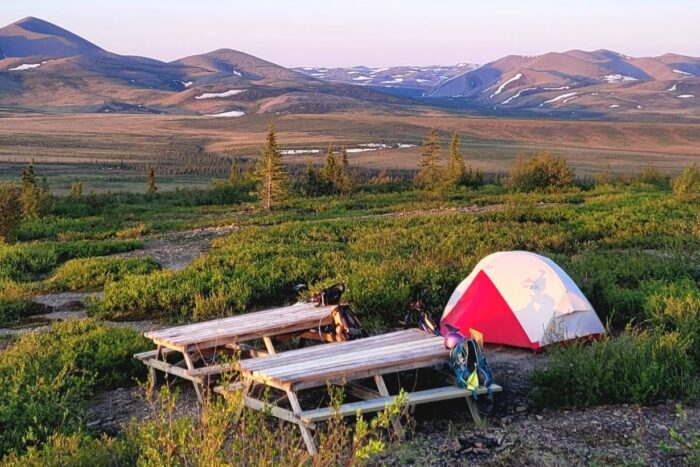
Camp for the night. Photo: Dave Greene
Their spirits picked up when they reached the Arctic Ocean and the community of Tuktoyaktuk on June 23, marking the end of their trip.
“Getting to the Arctic Ocean was quite the thrill. The community of Tuktoyaktuk is an Inuit community in Canada, and we happened to arrive the same day they were having their indigenous day, a territorial holiday,” Greene said.
Naturally, the weary — and no doubt sweat-encrusted — cyclists celebrated by jumping into the Arctic Ocean.
